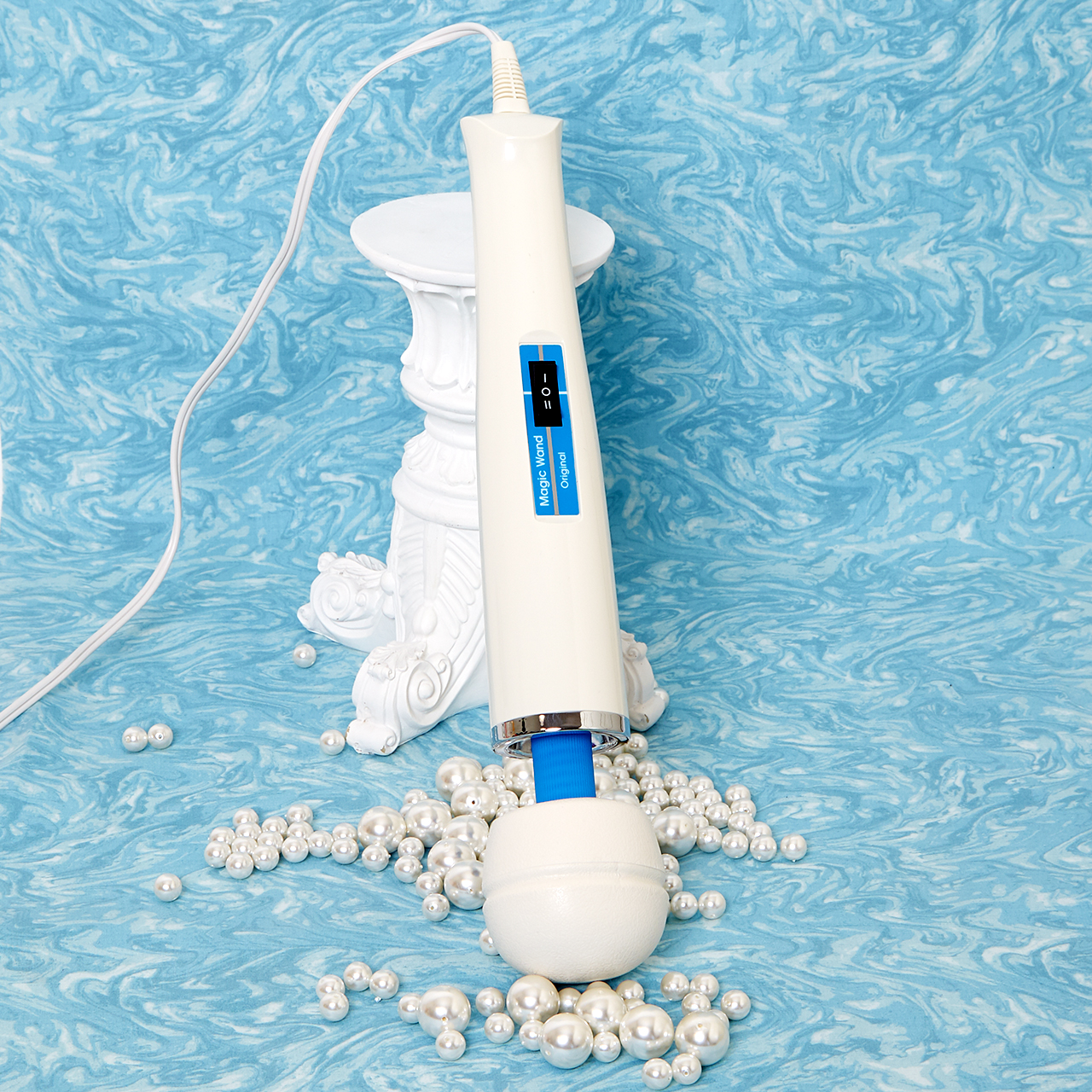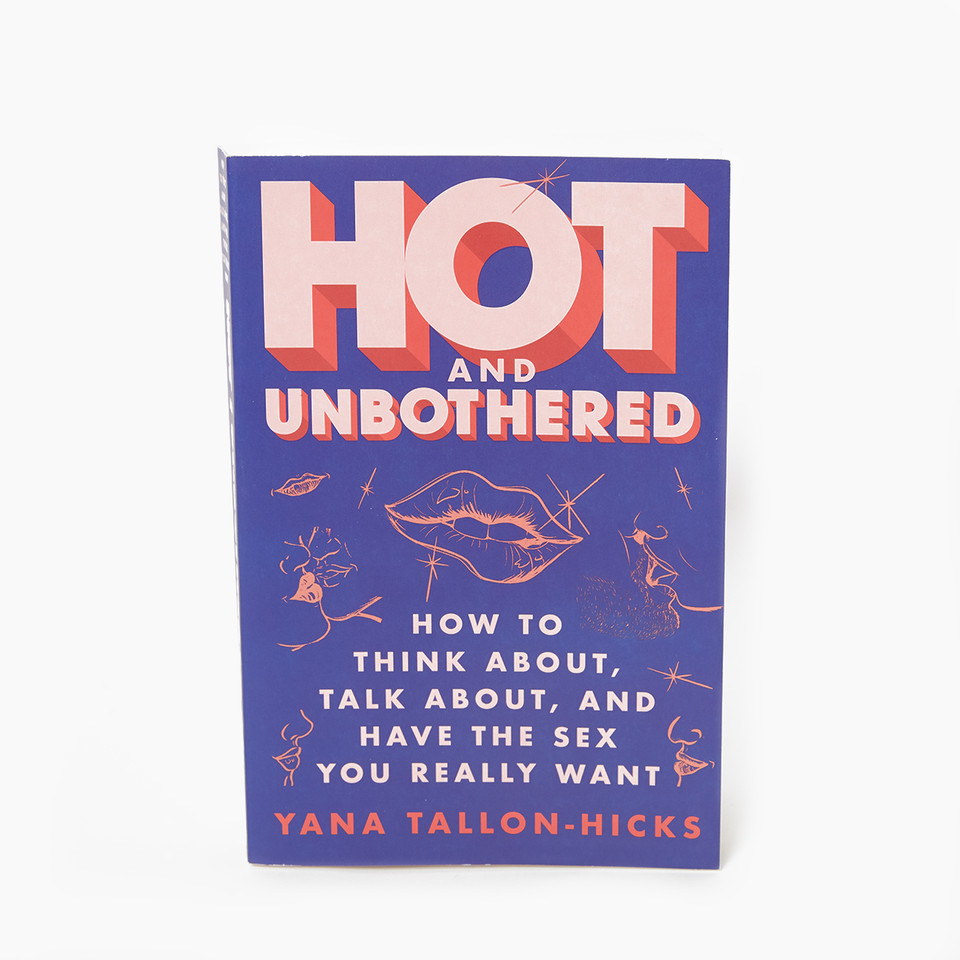Sex and Depression
"I don't necessarily believe that any one thing can or will "cure" depression; it is almost always a combination of therapy, medication, self work, journaling, community support, and yes, sex toys, that drag me out of the depths of depression."
**
Content warning: depression, anxiety, Post Traumatic Stress Disorder/PTSD, sexual assault
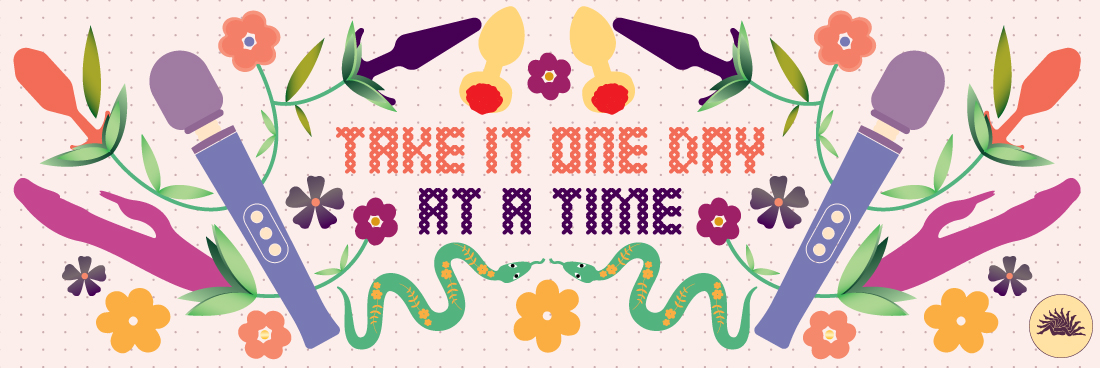
When I was in my second year of college, I was in the throes of Depression. I was grieving the death of a family member, I was navigating complicated and emotionally-charged friendships and relationships, and I was struggling to keep my ADHD in check (also interpreted as: I was on academic probation and at risk of failing the semester).
When I say I was Depressed, I mean I was big D DEPRESSED. Getting out of bed was a daily battle. Showering, washing my hair, putting on clean clothes, and getting to class on time on top of that felt nearly impossible. I had no appetite and felt completely unmotivated to leave my dorm room, let alone go to the dining hall and muster the energy to feed myself. I wanted to sleep all the time, but I was experiencing insomnia. The shame I felt, unable to navigate daily life as seamlessly and effortlessly as I perceived those around me, consumed me. I felt bad that I felt bad. I felt empty, numb, and filled with despair.
There are a lot of ways in which I was and am privileged-I have a family who cared about and supported me, who had me evaluated when I expressed symptoms of Depression, Anxiety, and ADHD at the age of 15, and had me diagnosed, in therapy, and medicated when I was having difficulty mustering the strength to live. This is definitely not the case for everyone, and while I've experienced discrimination in the medical system as a lower middle class Black femme, I was still able to get access to care.
By the time I was in college, I'd been on nearly every antidepressant and ADHD medication you can name, and I was in therapy every week. But by my second year, on top of everything else, I was experiencing Post Traumatic Stress Disorder (PTSD) in the aftermath of being sexually assaulted. I felt so much anger-an all-consuming anger, more intense than I had felt in my life. I felt angry with myself, and angry at the person who assaulted me. I didn't trust anyone (including myself, as I attempted to cope with extremely self-destructive habits), but I still desperately craved connection.
During the fall of my first year of college, my best friend took me to a local sex toy store for the first time. It was exciting, but overwhelming. I'd had few sexual experiences at that point, and I was too shy to ask the customer associates at the store for help. (Don't make my mistake! Customer associates are there to help you, answer your questions, and make sure that you get the best product to suit your needs.) There were so many colors and shapes that caught my eye, but there was one that flat out scared me-the Magic Wand plug-in.
I left the sex toy store that day with a cheap, battery-operated three-speed vibrator with a turn dial. It didn't last very long, it wasn't reliable or particularly strong, but it was made out of a body-safe material, and it ultimately got the job done well enough for me to not want to spend any of my hard earned work study money on another one.
Being depressed or experiencing a major depressive episode is not rare, but because of the isolating nature of the disorder, it can feel like you're the only one going through it. The Gallup Institute estimates that in the United States, 29% of adults have experienced depression in their lifetime, or nearly one in every three adults. This statistic is nearly 10% higher than it was in 2015, and the highest since Gallup adjusted the way it measures and records data on depression. Looking at gendered statistics, women are statistically more likely to experience depression than men-36.7%, or nearly two out of five women in Gallup's poll reported having been diagnosed with depression at some point in their lifetime, while a little over one fifth, or 20.4%, of men report having been diagnosed at some point in their lifetime. Your likelihood of experiencing depression also increases if you are Black, Latino, or low income. Keep in mind that these statistics specifically use the language of "diagnosed," meaning, someone saw a health care practitioner, whether for depression or during a routine screening for another health issue, and was told by a medical provider that they had depression. This data does not include self-screening, which would probably increase the statistic because the effects and symptoms of depression are so vast. To me, these statistics are already quite high, even without including self-diagnosis. The stigma of having and experiencing depression also impacts many people's ability to get support or get a diagnosis, and potentially their ability to seek treatment.
Common symptoms of depression are lethargy (a lack of energy and enthusiasm), hopelessness, a loss of interest in activities one would typically enjoy, social isolation, agitation and a lack of concentration or ability to pay attention. Depression can also significantly impact your appetite, and cause you to lose interest in food, or use it as a coping mechanism. Depression can affect your sleep, whether causing you to oversleep and be unable to get out of bed, or causing you to experience insomnia, preventing you from being able to fall asleep, stay asleep, and feel rested. Depression, especially when treated with antidepressants like SSRIs, or Selective Serotonin Reuptake Inhibitors, can also significantly affect your libido and your interest in sex. (If you're in need of a quick laugh, search "antidepressants and sex meme" in your browser.)
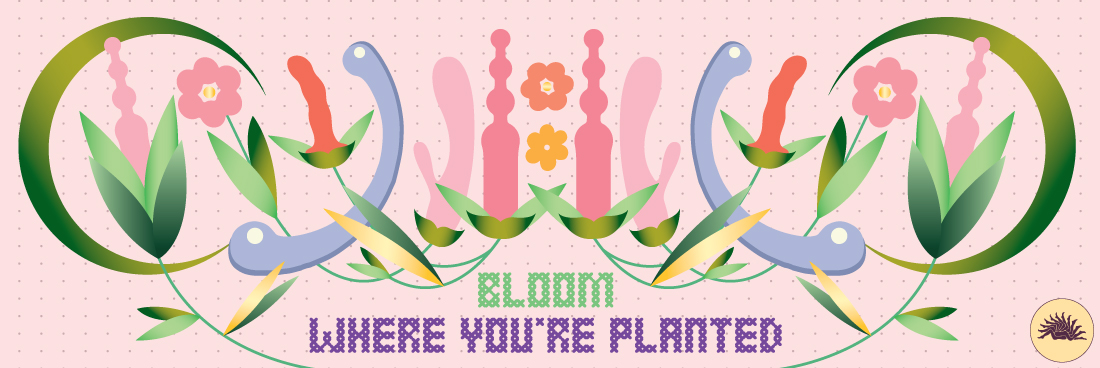
Rewind back to my second year of college, I was isolated and isolating. I was lethargic (AF). I was living the live, laugh, Lexapro life (before that was even a catchphrase), but I wasn't really living, and I definitely wasn't laughing… I was taking Lexapro in combination with other medications and desperately trying to hold on to myself and my life. I didn't want to talk to anyone, I didn't want to get out of bed, I didn't want to eat, I didn't want to go outside.
In a way, it feels extremely hollow to recommend sex toys or sex tips for someone experiencing depression, because most likely, a sex toy is not going to "cure" your depression. I don't necessarily believe that any one thing can or will "cure" depression; it is almost always a combination of therapy, medication, self work, journaling, community support, and yes, sex toys, that drag me out of the depths of depression.
When I was preparing to write this article, I told friends what I was writing about, and got pretty much the same response across the board-"Oh boy." The general consensus, among the folks I talked to about it, is that depression makes it difficult to maintain interest in sex, particularly when medication is involved, as many antidepressants negatively affect your libido. I'm not a doctor or a medical health professional, but I have a lot of life experience managing and manipulating my depression symptoms, both on and off medication, and one of the things that has helped mitigate my depression when I've been in the worst throes of it are… sex toys.
In general (and this could be a symptom of my ADHD), I have always needed constant auditory stimulation, but particularly in the aftermath of an assault and while experiencing PTSD, I needed to be listening to something-a podcast, music, the radio-all the time. Every moment of every day, if I wasn't in class, I had my headphones on. While trying to study, while trying to sleep, while trying not to brood and lament over the fact that I was sick, in a deep spiral of depression and despair, I was constantly listening to some form of media, if only to avoid my thoughts and the traumatic memories that were constantly reverberating through my brain. I listened to historical podcasts to support my academic work, and I hyper-fixated on podcasts about sexual health to quell my special interest and thirst for relationship and sexual health knowledge.
Like many people with depression, I was having trouble sleeping, and some of the podcasts I was listening to said that masturbation, and ultimately, having an orgasm, before going to sleep could create better sleep health-as in, first help me fall asleep, because I couldn't fall asleep, and second to help me stay asleep, because the rare times I could fall asleep, I would be restless, wake up multiple times, and be unable to stay asleep consistently and feel well rested. When we orgasm, our bodies release endorphins, making us feel more relaxed.
There are conflicting studies that try to study whether or not masturbating to orgasm or having sex with a partner to orgasm actually improves sleep health and the quality of your sleep, but studies consistently show that participants tend to think that orgasms help them sleep, and I believe that, in times of need, confirmation bias, or the tendency to believe or seek out information that supports one position or idea can be manipulated to have positive effects. So, if I believed that masturbation and orgasming would help me sleep, masturbation and orgasming would help me sleep. (This, in therapy speak, is also referred to "acting as if," so if I acted as if masturbation helped my sleep, it helped my sleep. This theory helped for my sleep but it didn't help for my happiness and your mileage may vary.) Thus, I was determined to find a sturdier, more reliable, more effective vibrator than my three-speed battery operated dud to consistently be able to orgasm and fall asleep.
At the time, Yana Tallon-Hicks, author of Hot and Unbothered: How to Think About, Talk About, and Have the Sex You Really Want, had a newspaper and digital sexual health advice column that I read religiously. I really appreciated how compassionate and understanding she was, no matter the question or issue someone was writing to her about. Something that Tallon-Hicks was consistent about throughout her advice column was the importance of maintaining a healthy sexual relationship with the self ("healthy" being a personal perspective - whether that means masturbating every day or once a week, somewhere in between, or above and beyond; think of it as a "Choose Your Own Adventure" book), and being unapologetic about whether that relationship with the self was through the use of sex toys and vibrators, particularly the Magic Wand.
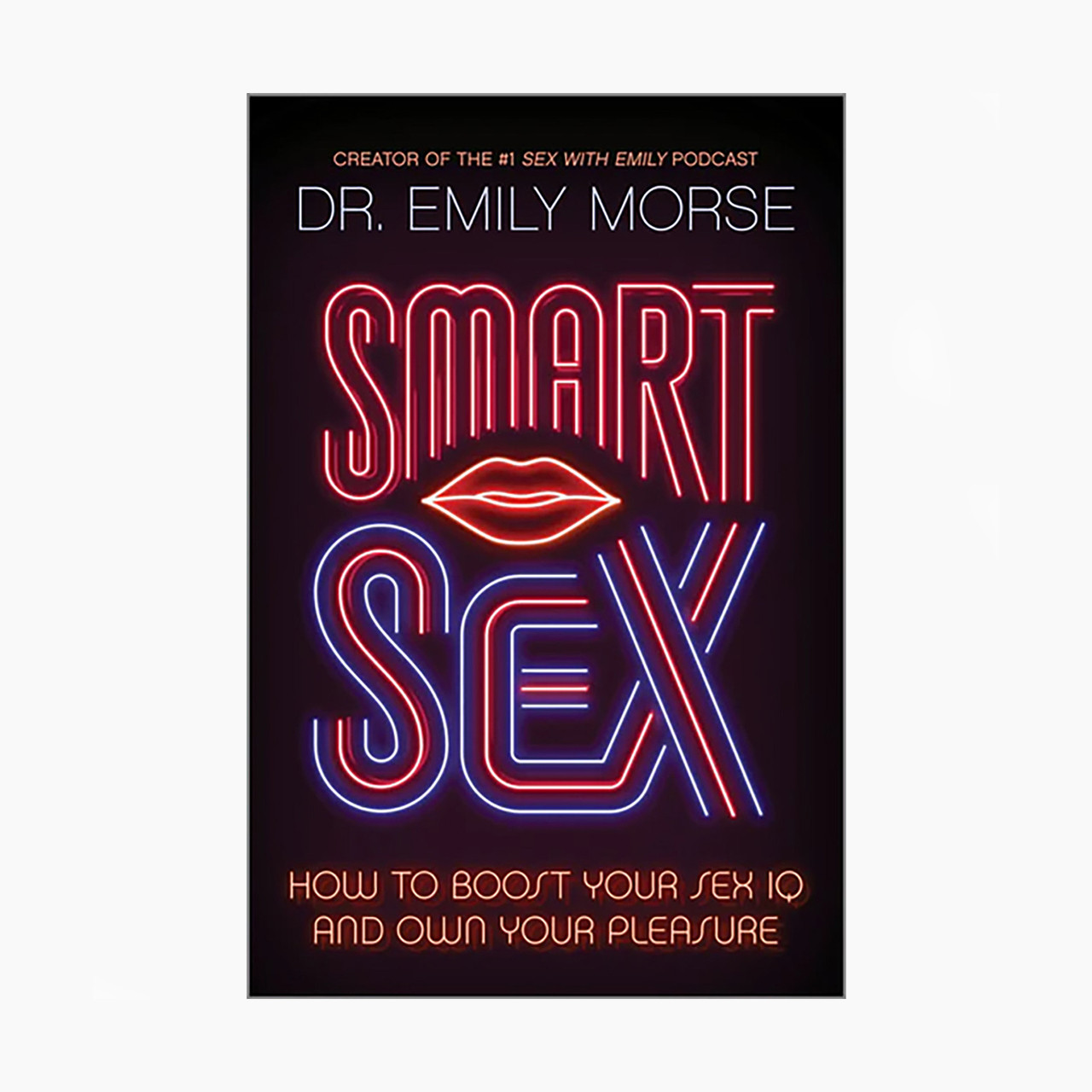 On the other hand, I was often listening to Emily Morse, author of Smart Sex: How to Boost Your Sex IQ and Own Your Pleasure, on her podcast, Sex with Emily. Morse also emphasized the necessity of a healthy solo sex life, and was also a proponent of the Magic Wand Original and Rechargeable, but she also liked and preached about the external Jimmy Jane Form 2 toy, a two-pronged vibrator similar to the Le Wand Chrome Double Vibe or the Le Wand Chrome Deux. As a broke college student, the Jimmy Jane Form 2 was a bit luxurious and out of my price range at the time.
On the other hand, I was often listening to Emily Morse, author of Smart Sex: How to Boost Your Sex IQ and Own Your Pleasure, on her podcast, Sex with Emily. Morse also emphasized the necessity of a healthy solo sex life, and was also a proponent of the Magic Wand Original and Rechargeable, but she also liked and preached about the external Jimmy Jane Form 2 toy, a two-pronged vibrator similar to the Le Wand Chrome Double Vibe or the Le Wand Chrome Deux. As a broke college student, the Jimmy Jane Form 2 was a bit luxurious and out of my price range at the time.
Despite my initial trepidation and overwhelm regarding the Magic Wand Original, there was something about it that kept calling me back and drawing my interest, and Tallon-Hicks' and Morse's proselytizing about it only left me with more curiosity and determination to try it. In the queer porn I was consuming, it seemed like everyone had a Magic Wand. I kept reading reviews from folks who were also on antidepressants, who were having trouble with their libidos, getting interested in sex, and maintaining sensation in their genitals to the point that they were unable to orgasm or enjoy sensual touch, who purchased a Magic Wand and were able to orgasm with it. Wand style vibrators, like the Magic Wand, provide broad stimulation, and because of their size, tend to pack a very rumbly punch that hits deeper than a small bullet vibrator that provides more pinpoint stimulation.
I did some research, and I found a coupon for an online retailer that sold official Magic Wand products. (Beware of counterfeits on Amazon and beyond. The Pleasure Chest is an official authorized retailer of the Magic Wand suite.) I ordered the Magic Wand Original, got it delivered to my campus, and suffice to say, it dramatically transformed my relationship with sex, and, ultimately, my relationship with myself, which I've found is my most important relationship (sexual, romantic, etc.). My sexual relationship with myself was my first sexual relationship, which I think is common for a lot of folks-we masturbate before we have sex with partners, whether we feel shame around it, because of the cultural stigma regarding masturbation and personally, or not-and you are (generally!) the most consistent sexual partner you'll ever have.
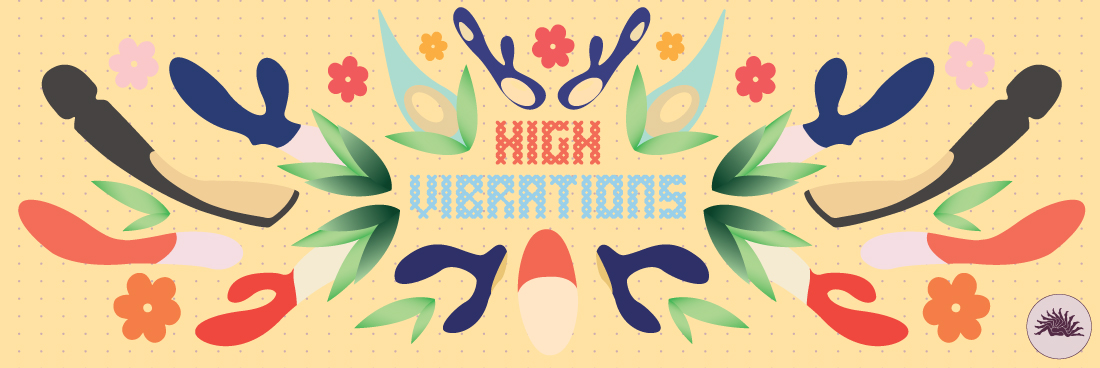
A few years later, once I was able to afford it, I purchased the Magic Wand Rechargeable, and it has lasted me over five years and hundreds (yes, hundreds, if not more!) of hours of use. It is one of the best investments I've ever made, and the product I reach for most consistently. (Morse has said that she reconfigured her bedside table to make sure that her Magic Wand is always charged and within reach.) I am not special when I say that wands are my favorite style of sex toy, and I definitely have a Pokémon attitude towards them (gotta catch 'em all!). Wands, and sex toys in general, didn't "cure" my depression alone, but they did help me explore my sensuality, and played a central role in helping me reconnect and rebuild a sexual relationship with myself after sexual assault.
There are a number of attachments available to customize your wand, whether you want to add some texture to grind against, make it an internal toy for G-Spot, prostate or anal massage, or turn it into a stroker for your external bits. If a wand is too strong for you initially, try using it on top of your underwear or over your clothes. You can also place it beneath a pillow if you're someone who likes to hump and grind against their toys-the vibration will transmit throughout the pillow and you'll have a vibrating pillow! Because the vibration will be more dispersed through the pillow, the intensity of the vibration will be dampened. Wands come in a variety of shapes, sizes, and textures; there are rechargeable wands, plug-in wands, battery operated wands-be wand massager Goldilocks and find your "just right."
It sounds cliché and obvious, but when life has lost its luster, it can be extremely difficult to find things that bring you joy. As we near the end of Masturbation May and Mental Health Awareness Month, I encourage you to explore creating a sexual relationship with yourself that feeds and fulfills you-whether that's through the use of a toy or your hand.
Mistrix Io Moon is a professional Dominatrix based in Los Angeles. Io's particular brand of domination is salacious, silly, and sadistic ... with a smile. Specializing in heavy bondage, CBT, and corporal punishment, Io delights in encasing, objectifying, and decimating dedicated devotees. You can find Io on Twitter and Instagram, @serveiomoon, and at www.serveiomoon.com.


